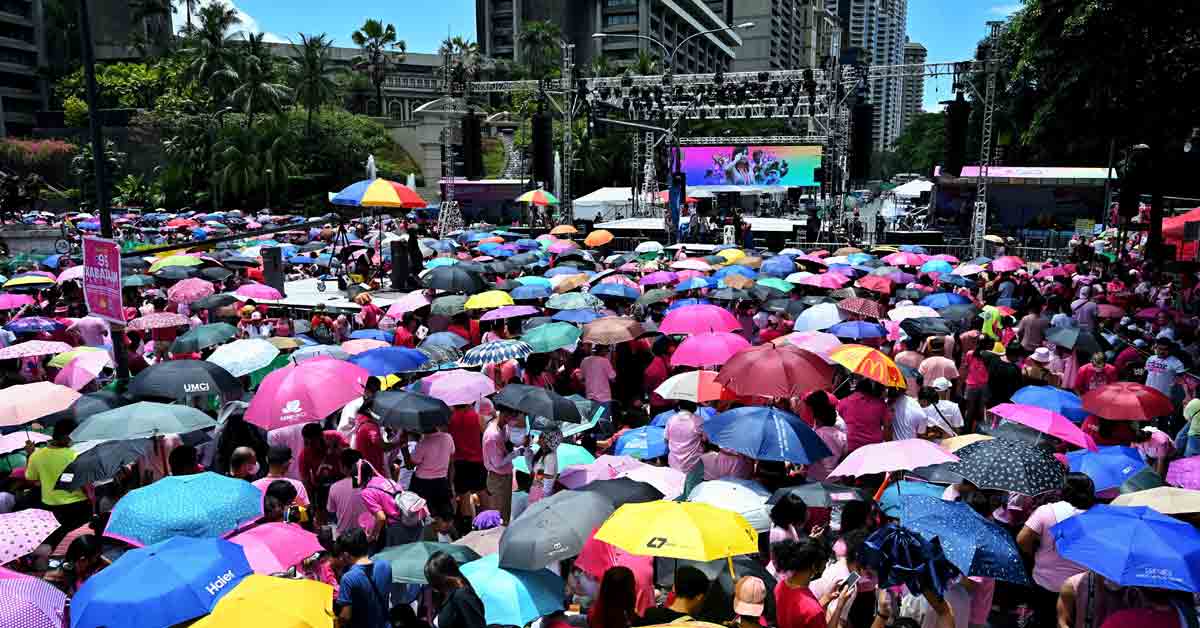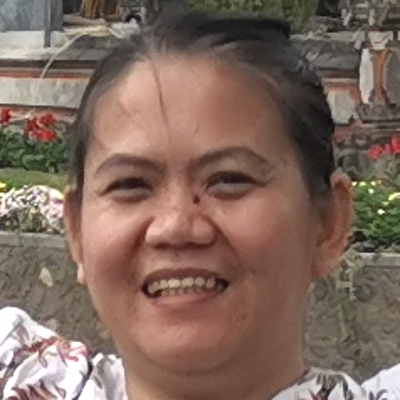The election fever has intensified two days before the 9 May, 2022 election. Around 67.5 million qualified Filipino voters are excited to go to the polls to cast their votes and elect a new president, vice-president, and other government officials.
For the highest and second-highest positions in the land, consistently across survey research outlets, the frontrunners of the upcoming election are Former Senator Ferdinand Marcos Jr or popularly known as Bongbong Marcos (BBM) for the presidency, and Davao City Mayor Sara Duterte-Carpio for the vice-presidency.
In the latest Pulse Asia presidential survey held from 16 to 21 April, BBM maintained his lead with 56 percent voting preference, while his closest rival, Vice-President Leni Robredo, garnered 23 percent. In the latest OCTA Research April 2022 nationwide election survey, BBM once again maintained his lead with 58 percent, while Vice President Leni Robredo is behind with 25 percent.
The Publicus Asia Pahayag final survey conducted between 2-5 May, 2022 further confirmed that BBM is the frontrunner with 54 percent voting preference, while Robredo reaped 22 percent.
Other nationalities have been asking me why BBM is gaining ground despite the many dirty linen thrown at him and will most likely win a landslide victory in the upcoming election two days from now over Robredo.
They have asked me why Robredo cannot break free from her low survey ratings against BBM. They even ask me why I will vote for BBM over Robredo. I think at least three foreign media outlets last Friday (6 May) interviewed me on the upcoming national elections, and consistently, these questions were raised.
In response, I told the foreign reporters, who are currently in the country covering the election, that I would answer their questions by elaborating more on why Leni is not the rational choice for a sensible voter; why I won’t vote for Leni; and why Leni is not likely to win in the upcoming elections.
When I say rational voter, I mean someone whose voting preference or behaviour is based on a thorough investigation and evaluation of the competence, performance, capabilities, pragmatism of the candidate’s platforms, if their aspirations for the country are indeed realistic and doable, and most importantly their foreign policy, which matters a lot given the challenging and changing geopolitical situation in the Indo/Asia Pacific region and beyond, where the theatre of rivalry/competition between the two superpowers China and the United States (US) is more pronounced and apparent.
These geopolitical dynamics are relevant and vital to consider, given the strategic location of the country and the delicate balancing act the Philippines has to strike with its relations between China and the US.
In this day and age, it’s not just local politics that matters, as international politics/geopolitics matter much too. Any president's decision on issues related to global politics/geopolitics is anchored on domestic considerations and definitely will affect domestic politics and situation.
Take note that the Philippines president is the sole architect of the country's foreign policy. In this regard, Filipinos need to choose someone who has an in-depth understanding of the issues and dynamics of the international arena and can make sound and pragmatic decisions upholding the country’s core national interests and security while relating with other countries.
Why Not Leni?
Filipinos must choose a presidential aspirant who is independent-minded and will consistently stand and defend the independence of the country. The aspirant must be someone who won’t end up a puppet or proxy of any country for that matter but someone who will pursue a more balanced, pragmatic, and independent foreign policy.
If one is cognizant of how Leni replied to questions during the presidential debates and her interviews with different media personalities on inquiries related to foreign policy, it is very apparent that she mimics and parrots US foreign policy more particularly on the ongoing Ukraine crisis and on the disputed South China Sea (SCS).
She frequently used terms like “rules-based order” and “freedom of navigation,” – terms/phrases coined by the Americans themselves. Robredo also seems supportive of AUKUS and QUAD.
I won't be voting for Leni on Monday. As far as I am concerned, a vote for Leni is the resurgence of a strong US influence on the country’s foreign policy and domestic affairs. A Robredo presidency means a more pro-US-leaning Philippine government, which will negatively impact and compromise the country’s friendly relations with China.
The country has benefited economically from the warming relationship with China when President Duterte implemented more friendly relations with the giant neighbour. To date, China remains the largest trading partner of the Philippines. It is now the country’s number one trading partner, number one import source, the number two export market, a major foreign investor, and the second-largest source of tourists to the Philippines.
Under the Duterte administration, the total trade volume between China and the Philippines has doubled compared with the total trade volume during the Aquino administration. Chinese investments in the country have even quadrupled in the past six years compared to the previous six years. This only shows the massive potential of the deepening, flourishing, and pragmatic economic and trade bilateral relations between the Philippines and China.
Any disruptions to the country’s friendly relations with China will be economically catastrophic for the Philippines.
The Marcos-Duterte ticket will most likely adopt a more balanced, pragmatic, and constructive independent foreign policy. The UniTeam stand bearers, if elected, will most likely adopt a more sensible and constructive stand on the issue of Philippine interests in the SCS vis-à-vis China and will most likely employ a peaceful diplomatic solution to the dispute bilaterally speaking and multilaterally within the ambit of ASEAN, in anticipation of the conclusion of the Code of Conduct (COC) soon.
The Marcos-Duterte tandem will most likely turn away from the rearmament and militarization of the SCS. It will also have double thoughts about supporting regional military-security architecture like AUKUS and the QUAD.
Undoubtedly, among the presidential aspirants, Robredo hopes to rebalance and deepen the country's ties with Washington rather than pursue a more balanced and independent foreign policy as pursued by outgoing President Rodrigo Duterte.
Another equally important reason I won’t vote for Robredo on Monday is because of the alleged alliance of her camp with the so-called enemies of the state, the likes of the CCP-NDF-NPA. The country can’t afford a president who sleeps with state enemies.
The CPP-NPA is the longest-running insurgent group in the world. It has waged a “protracted war” or “armed struggle” for more than 50 years since its founding in 1969. It is listed as a terrorist organization by the US, the European Union (EU), the United Kingdom (UK), Australia, Canada, and New Zealand. President Rodrigo Duterte declared the CPP-NPA as an entity designated and identified as a terrorist organization through Proclamation No. 37434 issued in December 2017.
The third, but equally important reason why I won’t be voting for Robredo on Monday is that she doesn’t have the necessary track record for the office of the presidency. Her credentials are highly decorative and ornamental. Her supporters take pride that she is a lawyer, but she has never won a single legal case.
Leni’s supporters take pleasure in the fact that she is an economist, yet I have not encountered an economic policy that she is known for. She couldn’t even remember the two bills she crafted when she was in Congress when asked in a media interview. In addition, she isn’t articulate when she speaks.
Worst of all, among the top officials of the land, Robredo is the least trusted, with a negative -9.9 percent trust rating in a recent Publicus Asia survey. Also, as vice-president of the country, instead of working with the government of which she is part of, she more often than not, criticized the government, painting the country in a bad light locally and internationally.
Furthermore, Robredo's brand of politics is very divisive, toxic, and exudes much hate. Recently, netizens reported that a young man, who was a supporter of BBM committed suicide because of depression after being allegedly bullied by his teacher, a Leni supporter on social media. This is indeed a heart-breaking piece of information.
No wonder the Marcos-Duterte tandem has attracted undecided voters precisely because their positive campaigning which has been like a breath of fresh air throughout the election season, while that of Robredo’s camp is toxic.
Conclusion
In voting for the next leaders of the Philippines, I consider two qualities – competence, and authenticity. I don’t see Robredo embodying either.
The fact she ran as an independent presidential candidate and had multiple shifts in political colour –from yellow to pink and now multi-colour – is a politically expedient move to distance herself from her political party, the Liberal Party, that has lost political currency in the Philippines. She remains the party chair, an indication that she has lost her integrity and is sadly devoid of authenticity.
In any case, my choice not to vote for Robredo on Monday is a personal one after much thought and realization. For those who don’t agree with me, I guess we can agree to disagree and respect our individual choices. Others, I suppose, may freely vote for their preferred candidates.
The views expressed in this article are the author’s own and do not necessarily reflect those of The ASEAN Post.

